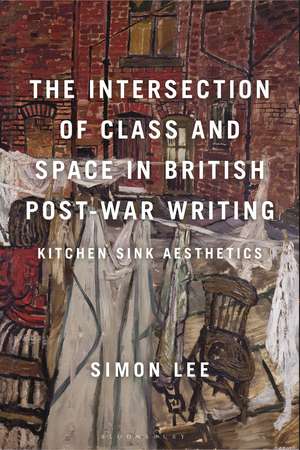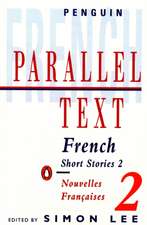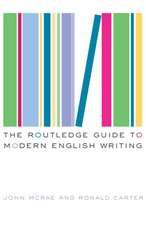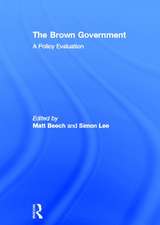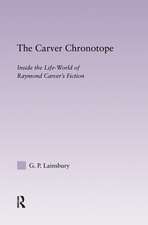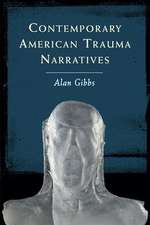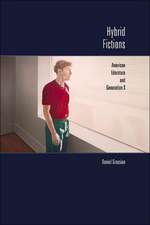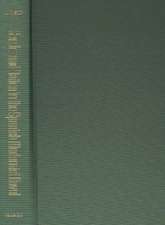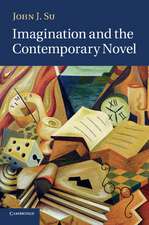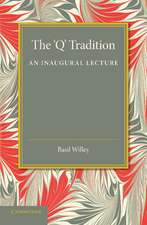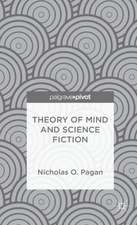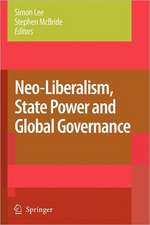The Intersection of Class and Space in British Postwar Writing: Kitchen Sink Aesthetics
Autor Simon Leeen Limba Engleză Hardback – 25 ian 2023
| Toate formatele și edițiile | Preț | Express |
|---|---|---|
| Paperback (1) | 191.31 lei 6-8 săpt. | |
| Bloomsbury Publishing – 24 iul 2024 | 191.31 lei 6-8 săpt. | |
| Hardback (1) | 510.49 lei 6-8 săpt. | |
| Bloomsbury Publishing – 25 ian 2023 | 510.49 lei 6-8 săpt. |
Preț: 510.49 lei
Preț vechi: 731.26 lei
-30% Nou
Puncte Express: 766
Preț estimativ în valută:
97.68€ • 106.44$ • 82.31£
97.68€ • 106.44$ • 82.31£
Carte tipărită la comandă
Livrare economică 23 aprilie-07 mai
Preluare comenzi: 021 569.72.76
Specificații
ISBN-13: 9781350193093
ISBN-10: 1350193097
Pagini: 240
Dimensiuni: 156 x 234 mm
Greutate: 0.51 kg
Editura: Bloomsbury Publishing
Colecția Bloomsbury Academic
Locul publicării:London, United Kingdom
ISBN-10: 1350193097
Pagini: 240
Dimensiuni: 156 x 234 mm
Greutate: 0.51 kg
Editura: Bloomsbury Publishing
Colecția Bloomsbury Academic
Locul publicării:London, United Kingdom
Caracteristici
Argues that the texts produced as part of the kitchen sink realism movement help us to better understand representations of social class in the present
Notă biografică
Simon Lee is Assistant Professor of English at Texas State University, USA where he researches and teaches Post-WWII British literature, social class and labour history. He has published on writers such as Colin MacInnes, Shelagh Delaney, John Osborne and Pat Barker, and on topics such as immigration, nationalism and cultural identity.
Cuprins
Acknowledgments Introduction 1 "Look at the State of this Place!"-The Impact of Domestic Space on Post-WWII Class ConsciousnessPost-WWII Housing and Classed SpaceTheorizing Domestic Space and Class IdentityDomestic Anxiety in Look Back in AngerRenegotiations of Identity in Saturday Night and Sunday MorningQueering the Domestic in A Taste of Honey 2 "Off Down the Local"-Institutional Borders in Working-Class Communities Shared Space and Working-Class Institutions Collective Consciousness and Shared Experience Shared Space and Identity Formation in Saturday Night and Sunday Morning Class Migration and Social Stasis in This Sporting Life Contours of Class and Mobility in Up the Junction 3 Spatial Transgression and The Working-Class Imaginary Theorizing Spatial Transgression: From the Production of Space to the Non-Space Transgressive Space and Post-WWII Potentiality Spatial Transgression and the Working-Class Imaginary in Up the Junction Subterranean Space and Diasporic Demimondes in City of Spades Differential Space and Inversion in The Loneliness of the Long Distance Runner 4 Against Class Fetishism: The Legacy of Kitchen Sink RealismA Genealogy of the Realist Mode: Form Versus FunctionCritical Approaches to Kitchen Sink AestheticsMultimedia Motifs and Kitchen Sink ThematicsCommodified "Kitsch-en" Sinks in Coronation StreetChannel 4 and Coordinated Class EffectsTheaters of Anger and AggressionClass and Space in Contemporary Fiction Conclusion BibliographyIndex
Recenzii
Simon Lee sets out an important and compelling case for how the kitchen sink realism of the 1950s and 1960s moved beyond 1930s proletarian representations to establish new forms of classed identity, which remain the benchmark for working-class writing today.
